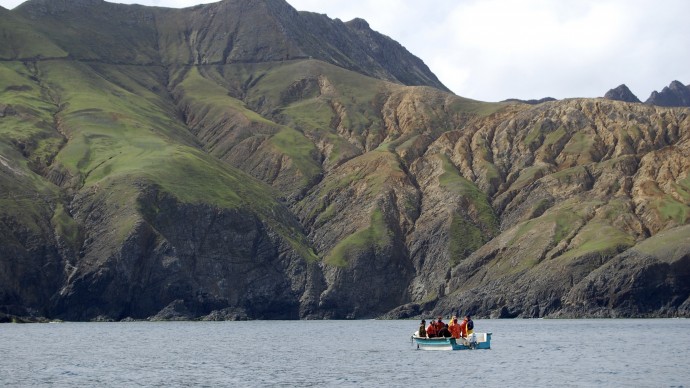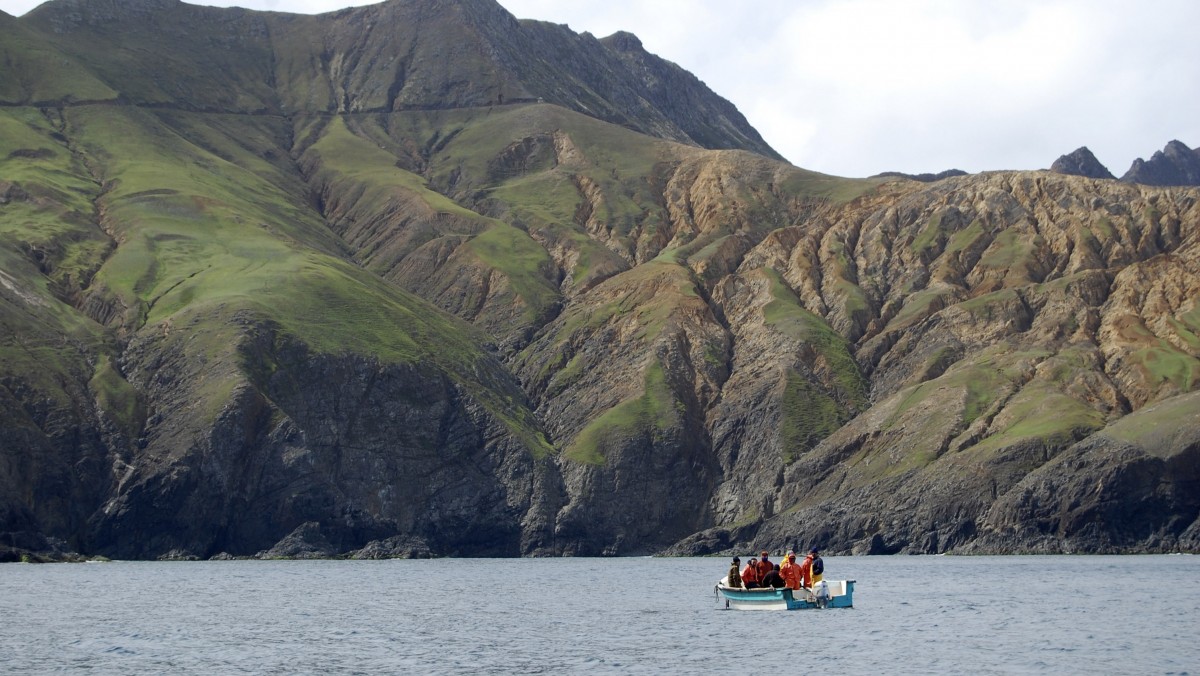
(MintPress) – A controversial fishing law in Chile has sparked violent protests in many of Chile’s coastal cities by local fishermen who say the new law will benefit large fishing companies and harm their livelihood. The Fisheries Act, pushed by Chile’s Economic Minister Pablo Longueira, would set new fishing quotas, regulate fishing licenses, reserve large coastal fishing farms for fishing industries, require the use of global positioning systems (GPS) on all boats and more.
The law is intended to go into effect in January 2013 and would continue for the next 25 years. The Chilean government says the reason they are pushing this law is to regulate the industry and make it a more sustainable industry.
Small fishermen vs. large fisheries
While the new law has aspects that are expensive for the small-scale fishermen to carry out, such as the obligatory GPS on every boat, the most controversial aspect of the law is the government’s allowance of big fishing companies to have concessions around fishing farms. Local fisherman have said they are not against all laws regulating the industry, they just want the government to “allow them more of an even footing among industry giants.”
A report from Chile’s Center of Investigative Journalism (CIPER) says that the Chilean fishing industry is an oligopoly and nine companies bring in 90 percent of the three main species: Chilean jack mackerel, sardine and anchovy. The study goes on to say that the fishing industry business in Chile is worth more than $1.2 billion per year.
In response to the new Fisheries Act, many fishing organizations, including the National Fishermen’s Confederation of Chile (Conapach), have spoken out against the new law by saying they believe the Chilean government’s grant to give big fisheries access to fishing farms is the “government’s way of privatizing a natural resource meant for all Chileans.”
In an official statement on the new law, Conapach said, “There is a great contradiction in the government’s concern with natural resources and its unwillingness to protect the historic grounds of artisan fisheries. The government is not open to dialogue about sustainability or to listen to the industry’s demands.”
In response, Chile’s Undersecretary of Fisheries, Pablo Galilea, told Radio Santiago, “[The Chilean government is] convinced that the Fisheries Act will not generate unemployment, as the project is based on resource sustainability, incorporating a fisheries management approach that relies on science, which will contribute to recovering the fisheries in Chile.”
Historical perspective
This isn’t the first law that has set restrictions on Chile’s fishing industry. A 2010 version of the Fisheries Act restricted the amount of salmon fishermen would be able to catch in an effort to allow the species to repopulate after a disease wiped out many of the nation’s salmon supply. Like the law currently being negotiated in Congress, the 2010 version was also met with a lot of criticism by fishermen.
In response to the current protests, Galilea told Radio Santiago that it would have been easier for the Chilean government to extend the current Fisheries Act, but “we believe this project will offer many benefits for the sector and so we are committed to this legislative initiative.”


